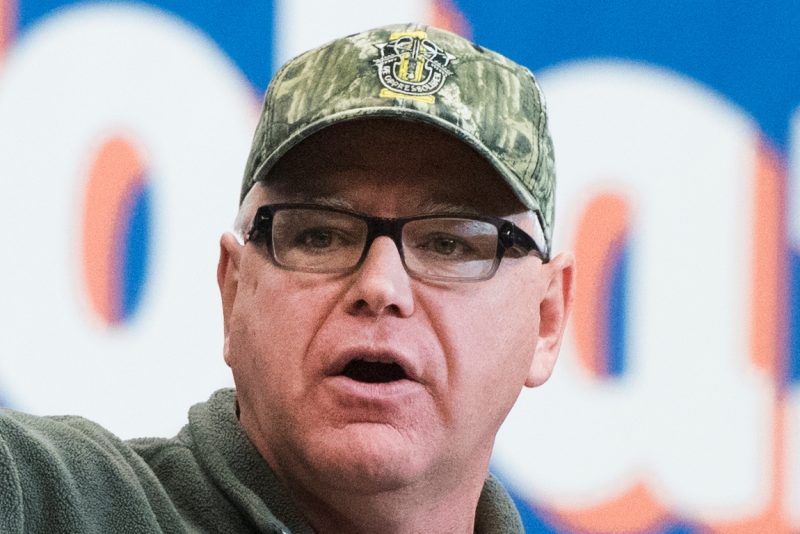Tim Walz: Journey from NRA Endorsed to Gun Control Advocate
In the world of politics, it is not uncommon for an individual’s stance on key issues to evolve over time, often in response to changing circumstances or personal experiences. One such example is Tim Walz, whose journey from being endorsed by the National Rifle Association (NRA) to becoming a vocal advocate for gun control has been both intriguing and inspirational.
Walz, a Democrat from Minnesota, began his political career with a more moderate stance on gun rights. In fact, during his early campaigns, he received the coveted endorsement of the NRA, a highly influential pro-gun lobbying group. His support for the Second Amendment was clear, and he aligned himself with the traditional views of many in his state.
However, Walz’s perspective on gun control began to shift as incidents of gun violence, both within his state and across the nation, increased. He witnessed the devastating effects of mass shootings, such as the tragic events at Sandy Hook Elementary School and Marjory Stoneman Douglas High School, and realized that something needed to change.
As a former high school teacher and member of the National Guard, Walz had a unique insight into the complexity of the issue. He understood the importance of protecting the rights of responsible gun owners while also acknowledging the urgent need for stricter regulations to prevent senseless acts of violence.
The turning point in Walz’s journey came when he was elected governor of Minnesota in 2018. In his new role, he made it a priority to push for common-sense gun laws that would enhance public safety without infringing on individuals’ rights. He worked with legislators from both parties to implement measures such as universal background checks, red flag laws, and funding for mental health services.
Walz’s evolution from an NRA-endorsed candidate to a gun control advocate has not been without its challenges. He has faced criticism from some who view his stance as a betrayal of the Second Amendment and a capitulation to liberal interests. However, he has remained steadfast in his commitment to promoting responsible gun ownership and reducing the risk of gun violence in his state.
In conclusion, Tim Walz’s transformation on the issue of gun control serves as a powerful example of the importance of listening, learning, and adapting in the face of changing circumstances. His journey reflects a deeper understanding of the complexities surrounding gun rights and public safety, and he continues to work towards finding common ground on this contentious issue. As he navigates the political landscape, Walz remains a beacon of hope for those who believe in the possibility of progress and positive change.




























